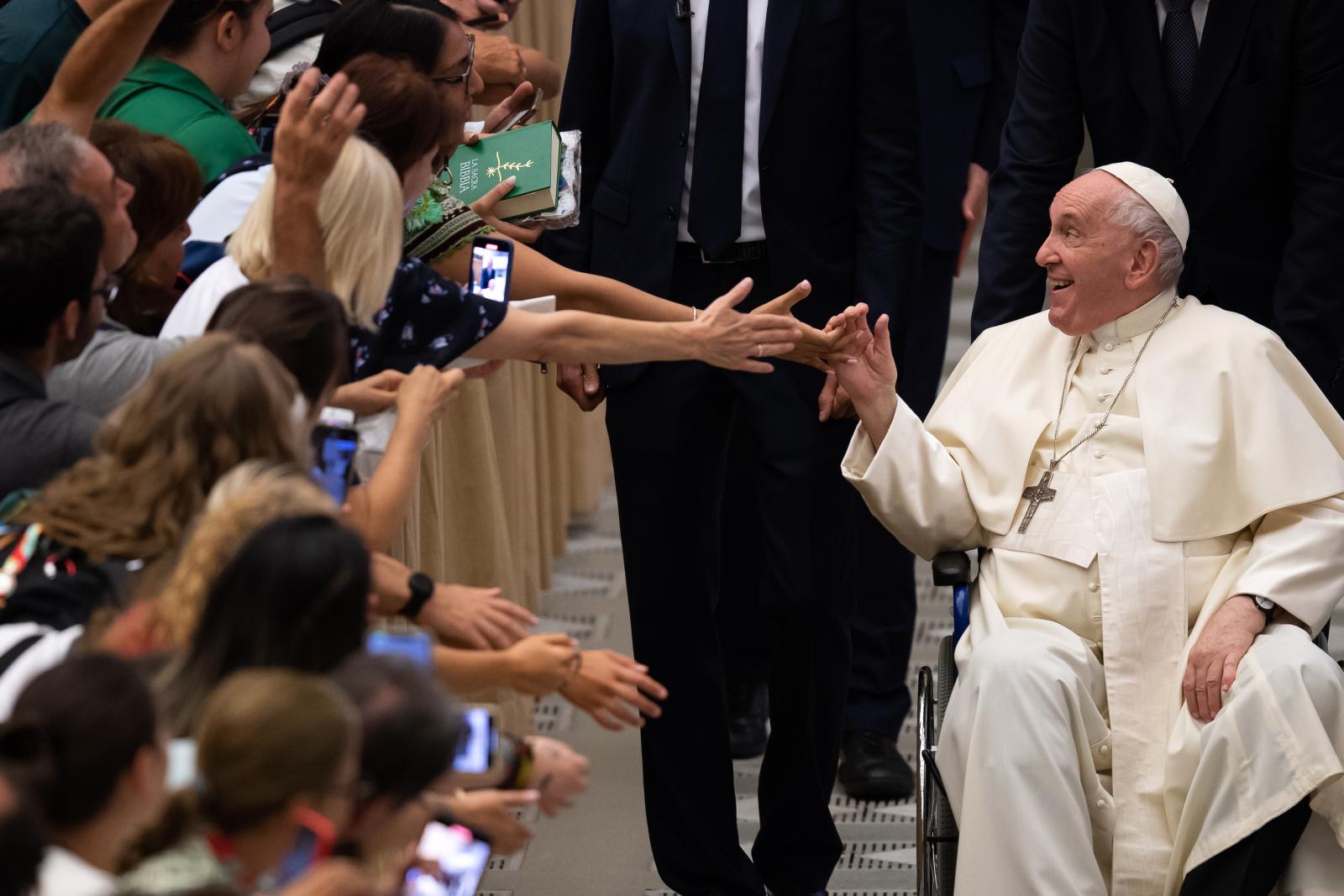By Deacon Roger Carr-Jones, Marriage and Family Life Co-Ordinator, Diocese of Westminster
The British seem to specialize in unusual and offbeat radio programmes, one of which is the obituary Last Word. Here the life of the person is summarized using narration and interviews with people who knew the deceased. Using relatively few words a well-rounded, honest and frequently insightful reflection of the person is given.
If I were a contributor to Last Word – Pope Francis it would be to speak of the three golden themes of the papacy of Pope Francis: mercy, joy and hope. These are his legacy to both the Church and the vocation of marriage. Qualities that are also essential ingredients of married love, where our limited human love encounters divine love.
Pope Francis began his papacy by calling the Jubilee Year of Mercy: one its immediate fruits being Amoris Laetitia, the Joy of Love. This document opened with the words, “The joy of love experienced by families is also the joy of the Church.” Here he showed how to put mercy into practice when dealing with the realities of married life and the trauma of divorce. This was his great contribution to the Gospel of the Family, the profound truth that God loves all persons in and through the family.
In Amoris Laetitia Pope Francis described marriage as ‘the icon of God’s love for us’ before going on to say, ‘God makes of the two spouses’ one single existence’. Responding to the concrete challenges faced by contemporary couples, his document provided an outpouring of mercy, joy and hope.
Summarizing a life in the succinct model of Last Word also brought into my mind the contrasting radio programme Just-a-Minute. This seemingly blank format for a radio show provides the basis for a wide-ranging opportunity for the contestants to explore, often through humour and banter, the subject in question. Its mantra of ‘without hesitation, repetition or deviation’ has the ability to hold the attention of the listener. As Pope Francis knew, communication is more than answering questions or delivering a message, it is about making people listen, remember and believe.
Reflecting on both of these shows in the light of the death of Pope Francis has been my way to reflect on his life and influence. Faith and humour were essential components of his ministry, which enabled him to remain grounded and close to the people. Faith and humour are also essential in living the vocation of marriage and family life. Pope Francis highlighted that the person who gives up their humanity loses everything, writing ‘that when it becomes hard to cry seriously or to laugh passionately, then we really are on the downhill slope’. For Pope Francis irony was a necessary medicine, which is best reflected in the ability to laugh at yourself.
Pope Francis would, I think, have made a good contestant on Just-A-Minute because he made fluency essential and had the confidence to speak light-heartedly. Everyday humour is certainly a quality that transforms and enriches married life rather than us wallowing in melancholy. An example of his humour would be, ‘Marriage is like a plant. It is not an armoire, which is placed there, in the room, and it’s enough to dust it every once in a while. A plant is alive, and it needs to be cared for every day: to see how it is doing, to give it water, and so it goes. Marriage is a living reality’.
The programme Last Word actually uses a number of words from different sources, which provide contrast and texture. In marriage, we speak of the importance of words and communication. That of Pope Francis was both direct and unorthodox, filled with empathy and messaging, using modern methods to make connections. If we were to compile our own version of Last Words about Pope Francis, what might we want to include? The ways in which he touched and communicated directly with people is complex and contrasting. His words spoke of action not rhetoric, humility over grandeur and he practiced what he preached.
It seems apt that his pontificate concludes in this Jubilee Year of Hope and within the Octave of Easter. It began on the balcony of St Peter’s with the words ‘Good evening’ and concluded with a phrase filled with Christian hope, ‘Happy Easter’.
Image: Mazur/cbcew.org.uk
